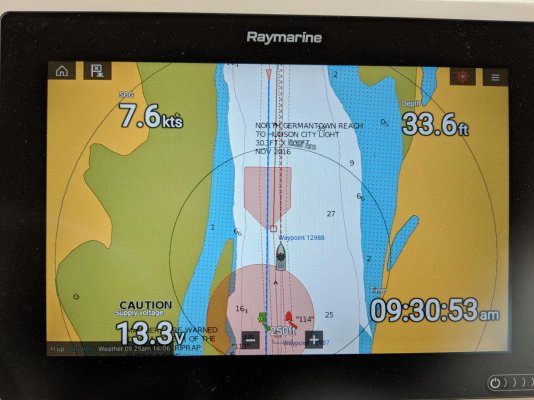Cigatoo
Guru
We were crossing Lake Ontario in an extremely heavy rain, the worst I have ever been underway in. Our 4kw radar was in white out mode due to the rain. There were 2 freighters crossing our course and the only way I knew they were there was the AIS. I could see them on the plotter but I couldn’t see anything on the radar. One obviously would cross well ahead of us. The other was on a collision course with us. We were stand on and they were give way. As I was reaching for the mic the freighter called us by name. I don’t know if he was able to see us on radar or not but he could see us via AIS since he knew our name. He stated his intention to turn to cross behind us. Without AIS I would have not known that he was there and maybe he would have not known we were there either. His radar may have been able to punch through the rain, I don’t know. But this one time paid for the AIS.
Exactly my point. Radar is great but more is better.

